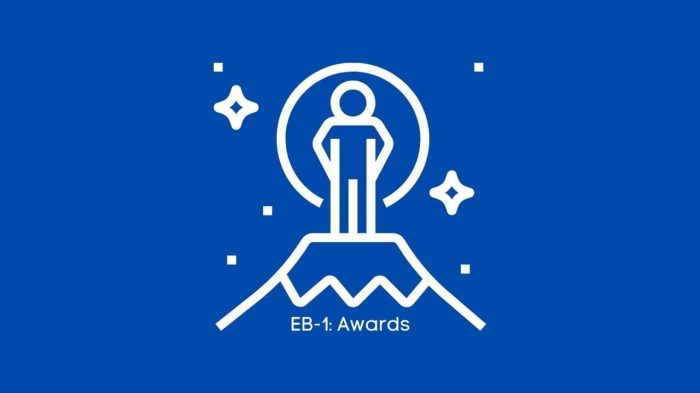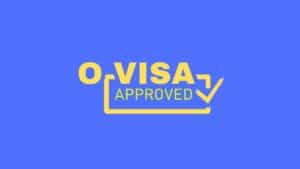Introduction
This article will provide an insight on the requirement “to provide evidence of receipt of lesser nationally or internationally recognized prizes or awards” for demonstrating extraordinary ability.
Are you applying for an immigration visa under the employment-based, first-preference (EB-1) category? You must know that you should be a foreign-born talent of extraordinary ability, an outstanding professor or researcher, or a certain multinational executive or manager. Applying under the “Extraordinary Ability” category throws additional challenges towards you about proving the extraordinary nature of your ability. Knowing about the supporting documents makes it easier to gather them all and increases the chances of the approval of your application.
Why do I need to show evidence of receipt of lesser nationally or internationally recognized prizes or awards?
When applying for an EB-1 Visa under the “extraordinary ability” category, you have to demonstrate extraordinary ability in the sciences, arts, education, business, or athletics through sustained national or international acclaim. USCIS has provided ten (10) criteria, out of which you have to meet at least three (3) or provide evidence of a one-time achievement (i.e., Pulitzer, Oscar, Olympic Medal) to demonstrate sustained national or international acclaim.
One such criterion is “to provide evidence of receipt of lesser nationally or internationally recognized prizes or awards for excellence.” Therefore if you have received less-known nationally or internationally prizes or awards in your life, you must prove one criterion less from the remaining nine to qualify under the EB-1A (a foreign-born talent of “extraordinary ability”) category.
Lesser knows national or international prizes or awards v. Major international awards.
The standard is lower for lesser-known national or international prizes or awards than major internationally recognized prizes or awards. However, the petitioner still faces the burden of showing evidence that the prize or award received by them falls under the lesser nationally or internationally recognized prizes or awards.
USCIS may evaluate the following factors or may ask the petitioner to submit the answers to the following questions to determine whether or not the award falls under the lesser-known category:
- What are the criteria used to grant the prizes or awards?
- What is the reputation of the organization or panel granting the prizes or awards?
- Who are the previous winners?
- What is the national or international significance of the prizes or awards?
- How many prizes or awards are awarded each year?
- Is there any geographic scope for which a candidate may apply?
How can I show evidence of the lesser nationally or internationally recognized award or prizes?
First of all, you must have received an award or a prize in your field of expertise. Secondly, you should know what factors USCIS will see while determining the nature of your award or prize. Usually, USCIS considers the following factors while determining the weight given to the lesser-known national or international awards or prizes. Be aware of that and provide evidence of the awards or prizes, which carries more weight.
Academic Scholarships, Grants, or Student Awards
The academic scholarships or grants do not fall under the umbrella of lesser nationally or internationally recognized prizes or awards. They are deemed to be not unique/uncommon and are not noteworthy to satisfy the regulatory criteria. Of course, there are rare and prestigious student awards given to outstanding students in the field. For example, the Academy of Motion Picture Arts and Sciences presents the Student Academy Awards in an annual competition for college and university filmmakers.
A team Award is less valuable than an individual award.
If you have won lesser nationally or internationally recognized prizes or awards as an individual, that would be considered more significant than you would have won as a team member.
Local awards
Local awards or prizes which are not won at national or international platforms do not suffice the requirements under this criteria. This is because local awards or prizes have been given less or no weightage as compared to nationally or internationally recognized awards. It is pertinent for the beneficiary to provide evidence of the recognition of the award or prize.
Criteria for eligibility
The criterion of eligibility is considered while assessing the lesser-known national or international prizes or awards. For instance, if an award is given only to a particular organization’s employees, the petitioner might not qualify as the award or price competition level is restricted to the organization’s pool of experts.
Nomination v. Winning
There is a clear difference between when one says he is nominated for the award and wins an award. For example, you are the winner of a nationally recognized award or prize in your country carries more weight than otherwise; you were only the nominee for such an award or prize.
The prizes or awards submitted in recognition of a foreign-born’s extraordinary ability must be renowned nationally or internationally. The petitioner must provide evidence of the number of persons who competed for the award or prize, the recognition of the award or prize at the international or national level, and the competition criteria along with the evidence of the receipt of the award or prize.
Conclusion
Submitting the correct documents and acquiring the proper knowledge is a virtue in your visa application process. It would be best if you had a fair idea from this article about what factors you need to consider before submitting the supporting documents for your EB-1 visa (under the “extraordinary ability” category).
It is always an edge to get immigration advice before submitting your documents to provide you a good idea about the chances of approval of your visa. Suppose you find any trouble regarding the process or documents analysis for your EB-1 application. In that case, you can send us a message, and our immigration attorneys would get back to you regarding your query.








 by Prozco®
by Prozco®